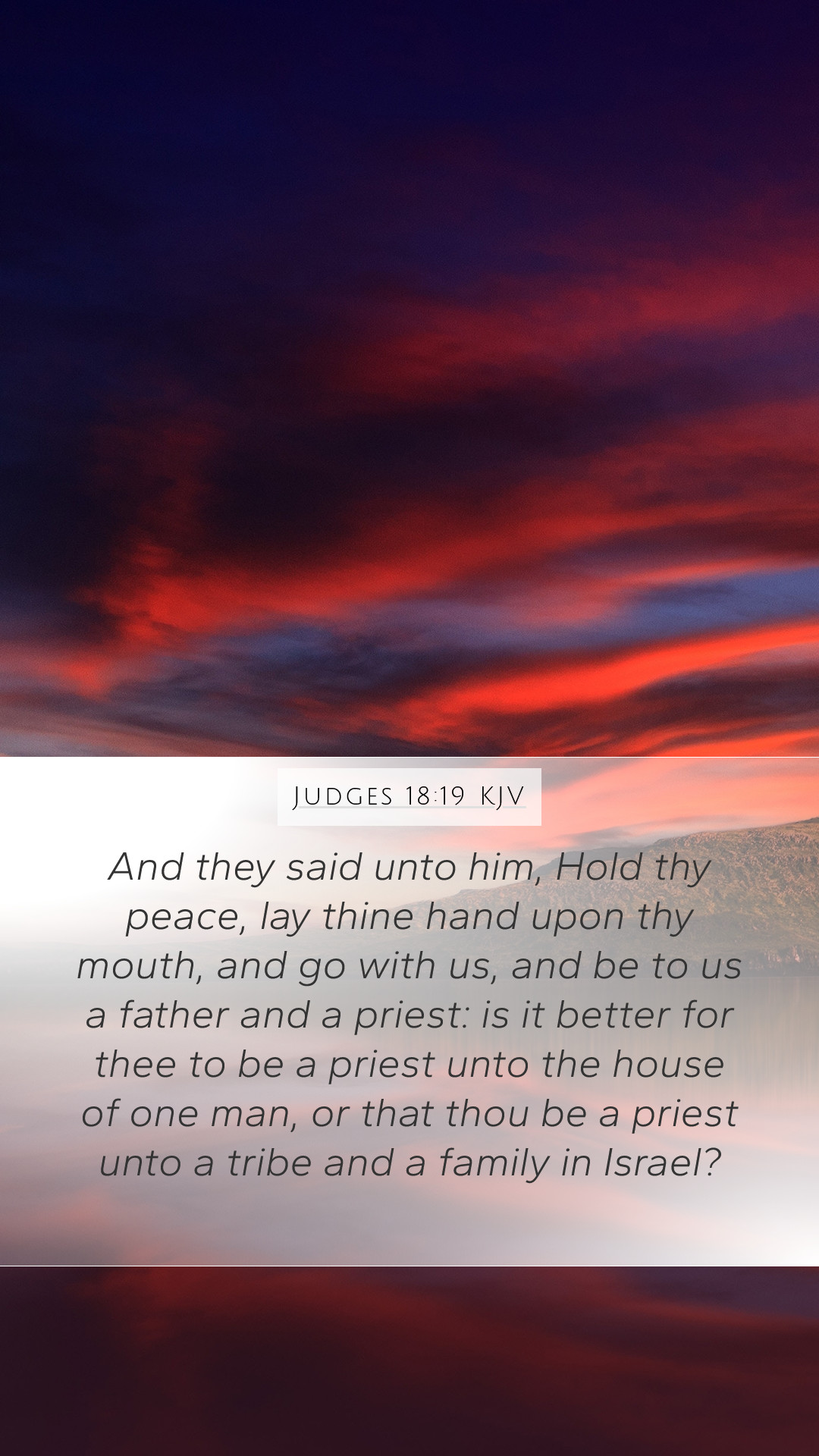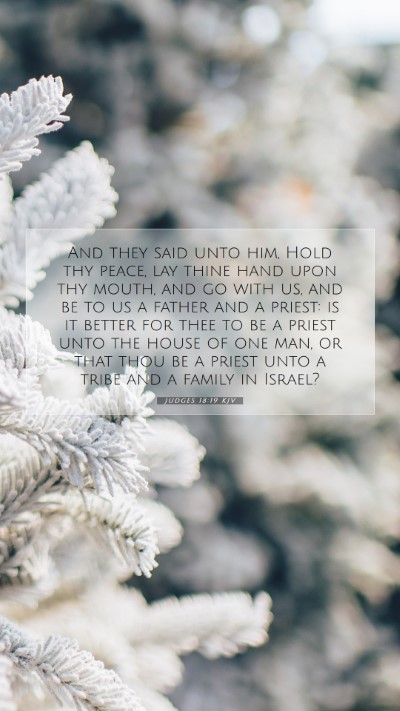Old Testament
Genesis Exodus Leviticus Numbers Deuteronomy Joshua Judges Ruth 1 Samuel 2 Samuel 1 Kings 2 Kings 1 Chronicles 2 Chronicles Ezra Nehemiah Esther Job Psalms Proverbs Ecclesiastes Song of Solomon Isaiah Jeremiah Lamentations Ezekiel Daniel Hosea Joel Amos Obadiah Jonah Micah Nahum Habakkuk Zephaniah Haggai Zechariah MalachiVerse
Judges 18:1 Judges 18:2 Judges 18:3 Judges 18:4 Judges 18:5 Judges 18:6 Judges 18:7 Judges 18:8 Judges 18:9 Judges 18:10 Judges 18:11 Judges 18:12 Judges 18:13 Judges 18:14 Judges 18:15 Judges 18:16 Judges 18:17 Judges 18:18 Judges 18:19 Judges 18:20 Judges 18:21 Judges 18:22 Judges 18:23 Judges 18:24 Judges 18:25 Judges 18:26 Judges 18:27 Judges 18:28 Judges 18:29 Judges 18:30 Judges 18:31

